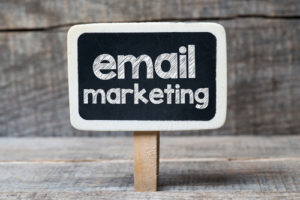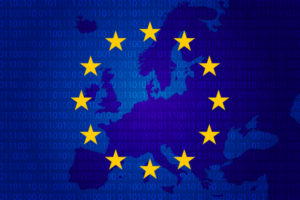Top 2018 Blog Posts on EventTech Talk

Tech is always pushing the boundaries of how we plan and run events – and 2018 was certainly no exception. Almost every week, we came across a new start-up, solution or gadget with promises of making planning easier and events more exciting. And then there was GDPR – one of the biggest shake-ups in data protection laws that radically changed the way event planners use technology to gather, share and look after the personal information of people coming to their events.
We launched the EventTech Talk blog three ago and have since seen a tremendous growth in a community of tech-savvy event planners who want to learn more about the latest technology development shaping the industry today. With regular polls and research studies, we’ve also been able to get good insight on uptake and trends, as well as varying opinions from well-known tech experts on issues like GDPR, data security and personalisation.
With that in mind, we thought we’d share the top technology stories that really hit the mark with our readers over the past year. Based on unique page views and social media shares, have a look at our top ten blog posts from 2018:
#1 Top Subject Lines for Your Event Email Campaigns

What makes a potential attendee open an email you’ve sent about your event? More often than not, it is the subject line. It’s usually what makes the first impression of the message you’ve sent. And it is often what drives enough interest in people to read on and sign up. But if subject lines have the power to make or break the email marketing campaigns you’re running around events – what are the key things you need to think about when comes to choosing subject lines? And which ones have proven to work best when promoting meetings and events? Read more.
#2 Seven Steps to Get Your Events Ready for GDPR

The EU General Data Protection Regulation (GDPR) is probably one of the most important changes facing our industry today but compliance is seen by many as a complex, challenging and costly process. And though it may be the responsibility of your IT and legal teams to sort it all out, there are a number of things that event planners need to do to make sure they don’t put their organisations at risk. This checklist highlights the key steps to take to prepare your events for GDPR, based on advice published by the UK Information Commissioner’s Office (ICO). Read more.
#3 Does GDPR Change the Rights of Your Attendees?

One of the key things GDPR wants to address is that organisations dealing with personal data are doing so in a transparent and secure way – and always in the individual’s best interests. And as a result, the new legislation has changed the way event planners collect and handle the personal information of people coming to their events. But compared to other data protection regulations, what impact does GDPR have on the rights of attendees? Read more.
#4 Ask the Experts: The Next Big Thing in Event Tech 2019

We saw a lot of interesting things happening in the world of event tech in 2018. From the likes of LinkedIn and Airbnb making steady inroads into the events space to the much-anticipated applications of AI-enabled technology such as chatbots and facial recognition. The EU GDPR was another big one as it changed the way event planners use tech like registration systems and apps when collecting the personal information of people coming to their events. EventTech Talk spoke to some of the industry’s well-known tech experts to find out what they felt was important in 2018 and what they think will be the next big thing over the coming year. Read more.
#5: Event Marketing Under GDPR – Consent Vs Legitimate Interests

One of the biggest issues event marketers face around GDPR compliance is figuring out which legal basis to use when contacting people on mailing lists. ‘Consent’ is the obvious choice but ‘Legitimate Interests’ (LI) can also be considered as a viable alternative – especially in the context of B2B event marketing. However, before making that all important decision, event planners need to understand what LI actually means under GDPR, how they can decide whether they can use it as a legal basis and what added risks they need to take into consideration to avoid unpleasant surprises in the future. Read more.
#6: How to Collect Valuable Data from Events

Event tech systems help organisations collect important data around their events (registration forms, surveys, apps). And yet the amount of data these systems generate can be overwhelming: from website traffic and social media engagement to registration and attendance. From the quality of attendees to feedback and evaluation. From generated revenue to conversion rates and sales leads. So which of these data metrics actually matter to event planners and which data collection tools are seen as the most effective for measuring success? Read more.
#7: Top 7 Personality Traits of a Great Event Manager

Successful event managers at the peak of their career are driven, highly organised professionals – but did they all start out that way? If you’re lucky, you might have these personal traits. Those innate qualities that come naturally to you. And perhaps the patience and stamina which certainly contribute to making you the right kind of personality for event management. But what other personality traits might benefit a career in event management? And how are these different to the actual personal skills you might need to learn or further develop a successful role in meetings and events? Read more
#8: Eight Bad Security Habits Event Planners Should Quit

As an event planner, you may easily think that the whole issue of data security is something that needs to be dealt with by your IT and operations teams. But the reality is that there are many day-to-day things you may be doing that could easily put your organisation at serious risk of a data breach. And with GDPR now in place, it is more important than ever to understand exactly what you should and shouldn’t do when it comes to securing the personal information of people coming to your meetings and events. Have a look at the top things event planners should put more attention to prevent their attendees’ personal information from getting into the wrong hands. Read more.
#9: How to Handle a Big Crisis at Your Event

A 2018 poll found that 77% of event planners find security and safety a growing priority for their events – which is no surprise given the world we live in today. Knowing what to do at a time of crisis has never been more relevant. As an event planner, you may already have your own organisation’s crisis management policies that you need to follow. The hotels and conference facilities you use will also have their own security and safety procedures that you need to carefully keep in mind. But how do you communicate with attendees if a crisis hits your event? Knowing who you should talk to, as well as how and when you do that communication can make a big difference. Read more.
#10: Top Time Management Tips for Event Planners

Time. It’s the event planner’s most precious commodity and yet it is also one of the main challenges of organising any type of event. Most of us feel that we simply don’t have enough of it. Having good time management skills isn’t that easy either. Even those who have a natural inclination in organising their time effectively don’t get it right all the time. Whether it’s procrastination, personal distractions or tasks that take up a lot more time than they should, there are many things that waste our time every day. And wasted time means rushed deadlines, a work-life imbalance and more stress and anxiety. Take a look at this infographic for our top eight tips to help organisers save time when planning and managing events. Read more.
Want to be a tech savvy event planner? Get weekly updates from our blog and learn about the latest technology trends, discussions and debates shaping our industry today. Click here to join EventTech Talk today.
